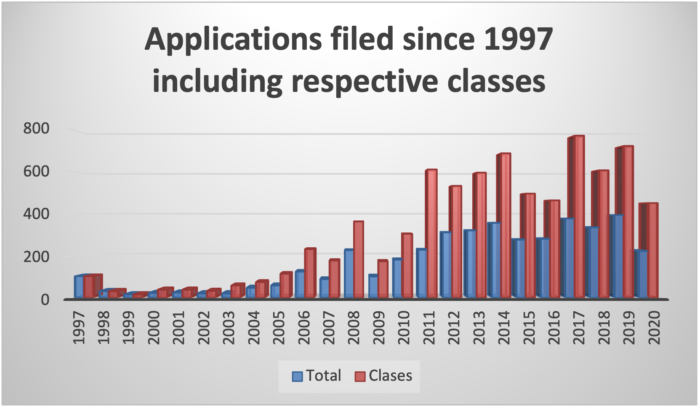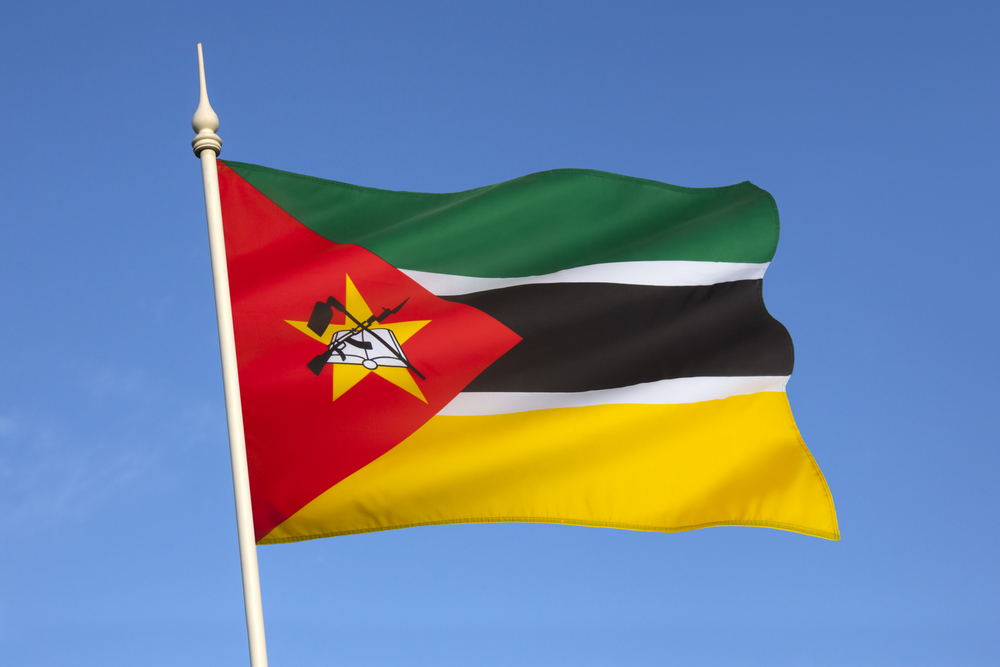By Mr Pierre C. Runiga, Head of Policy, Legal and International Cooperation, ARIPO
Introduction
The Republic of Mozambique joined the African Regional Intellectual Property Organization (ARIPO) in February 2000 through accession to the Harare Protocol on Patents and Industrial Designs that was adopted in 1982. On 15 May 2020, the Government of the Republic of Mozambique deposited its Instrument of Accession to the Banjul Protocol on Marks with the Director General of ARIPO. Pursuant to Section 11:4 of the Protocol, the latter entered into force, with respect to the Republic of Mozambique, three months after the date of deposit of the Instrument of Accession, i.e. on 15 August, 2020. This now entails that, starting 15 August 2020, users of the ARIPO system could designate Mozambique in their trademark applications. This brought the number of Contracting States of the Banjul Protocol to 11. The other States are; Botswana, Eswatini, Lesotho, Liberia, Malawi, Namibia, Sao Tome and Principe, Tanzania, Uganda and Zimbabwe.
The Banjul Protocol on Marks of 1993
The Banjul Protocol on Marks was adopted in Banjul, The Gambia, on November 19, 1993 and entered into force in 1997. The Protocol empowers the Organization to register marks on behalf of the contracting States. Since the entry into force of the Protocol, ARIPO has received 4066 multiclass filings, corresponding to 7518 applications in different single classes. The graph below shows that growing trend:

Domestication of the Banjul Protocol by Mozambique
The conception of the ARIPO system is that, once an intellectual property right is granted or registered, it is subjected to the national laws of the designated States. It is often argued by some users of the Banjul Protocol that there is uncertainty on its enforceability in Contracting States that did not explicitly domesticate the Protocol in their national IP legislation[1]. However, in the case of Mozambique, its new Industrial Property Code that came into force in 2016 had already made provisions that would allow the immediate implementation of the Banjul Protocol if the Country became party to the Protocol. Article 142 of the Code reads: “The owner of a registered mark or the applicant of an application for registration filed at the IPI, may secure its protection in States which are signatories of regional treaties relating to the protection of intellectual property and to which Mozambique is a Contracting Party, in accordance with the provisions defined by their respective instruments of implementation”
Benefits for Mozambique and users
With the accession of Mozambique to the Banjul Protocol on Marks, holders of the marks worldwide will benefit from the regional route for the protection of their rights in the Republic of Mozambique. Likewise, national entrepreneurs can use the Banjul Protocol to protect their rights in the 11 States that have ratified or acceded to the Protocol.
Furthermore, as it is the case for other Protocols in the framework of ARIPO, the ARIPO route is cost-effective when an applicant intends to file applications in multiple jurisdictions. As noted by Inês Tavares of Inventa International[2], “benefits [of accession of Mozambique to the Banjul Protocol] also include simplified processes (e.g. Mozambican applications require the notarisation of the power of attorney, while ARIPO requires only signed power of attorneys for trademark applications). Since ARIPO’s formalities are standardised, the requirements are transversal to every member state, which means that prerequisites for filing trademarks in Mozambique through the regional route are now easier to handle”.
The experience of the performance of the Harare Protocol in the case of Mozambique foreshadows the success of the Banjul Protocol as well. In fact, since Mozambique’s accession to the Harare Protocol in 2000, the revenues from patents, utility models, and industrial designs granted or registered under the Harare Protocol have been growing exponentially. Applications designating Mozambique also kept growing, and the corresponding revenew sharing for Mozabique is is 6%[3].
Conclusion
Accession of Mozambique to the Banjul Protocol came as great news to the users of the ARIPO system. On many occasions, enquiries have been ensuing at the ARIPO Office from users as to whether they could designate Mozambique. This finally became possible starting 15 August 2020. The Country, thanks to its strategic location and trade corridors, will gain a lot in the exploitation of the Banjul Protocol. It is also noteworthy that apart from the financial gains to be derived from the Banjul Protocol, the accession of Mozambique to the Protocol affords an opportunity to members of staff of the Industrial Property Office to build their capacity on the examination of applications filed under the Banjul Protocol and other trademark applications in general.
Footnotes
1 This position is nevertheless not shared by all users. See for example Ilse Du Plessis of ENSafrica in her Article that was dedicated to the accession of Mozambique to the Banjul Protocol. She said: “We are not aware of any ARIPO registration that has been found to be invalid on the grounds that the Banjul Protocol has not been incorporated in the national IP legislation”. https://www.ensafrica.com/news/detail/2818/trade-marks-in-africa-mozambique-joins-aripo/ (Last accessed on 17 September 2020)
2 Ines D. Tavares, “Mozambique: Mozambique joins the Banjul Protocol on Trademarks”, available at this link: https://www.mondaq.com/trademark/956178/mozambique-joins-the-banjul-protocol-on-trademarks#:~:text=Mozambique%2C%20a%20Portuguese%2Dspeaking%20country,joined%20ARIPO%20in%20February%202000. [Last accessed on 17 September 2020]
3 In the revenue sharing, the amount for each Member State is set based on the number of designations received

